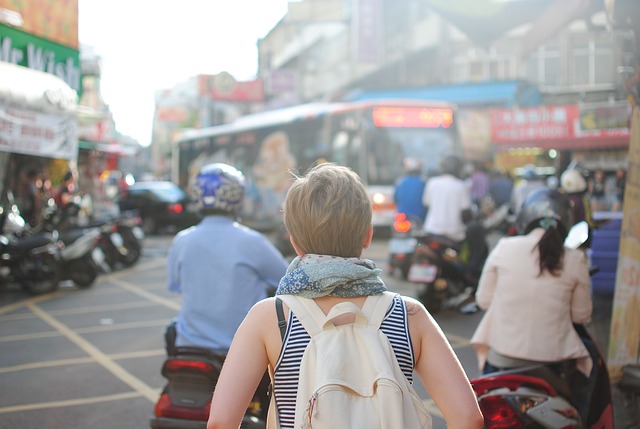What Travel Vaccinations Do I Need Before I Go Backpacking?
Planning your gap year trip is an exciting time but when travelling to far-flung destinations, looking after your health should always take priority. This isn’t just a case of making sure you don’t get sunburnt or pick up a nasty dose of food poisoning, but also getting all the relevant travel vaccinations for whatever countries are on your itinerary. What travel vaccinations you need will obviously depend on where you’re planning on going, but sorting them out really isn’t something you can leave to the last minute. We’ve put together a guide with all the things you should consider as well as pointing you in the direction of some other essential travel vaccination advice
What Travel Vaccinations Will I Need?
Different countries have different requirements and recommendations when it comes to vaccinations for travel. Of course, it’s not going to be helpful to list every single requirement for every single popular backpacking destination right here, so we’re going to point you in the direction of the NHS Fit for Travel site. Here you can select what country or countries you plan on going to and they will detail all the travel vaccinations you need as well as breakdown of what diseases they prevent.
As an example, we’re going to focus on India, it being a country with quite a few vaccination recommendations as well as popular backpacking destination. In this case, the NHS strongly advises travel injections for Diphtheria, a Hepatitis A vaccine, Tetanus and a Typhoid jab if going to India, but other travel injections you should consider are Cholera, a Hepatitis B vaccine, Japanese Encephalitis and Rabies. If you’re unsure whether it’s worth getting particular travel jabs or not, you need to think about:
- What time of year you’re travelling – certain diseases are more prevalent during some seasons that others
- How long you’re staying – the longer you’re there, the more at risk you can be
- What sort of area you’ll be staying in – some diseases pose a greater risk in urban areas, some in rural
- If you’ll be working with animals – in this case, rabies poses a much greater threat
Yellow Fever Vaccine
Yellow fever is only found in a handful of regions (in Sub-Saharan Africa, Central and South America), but as well as stopping you from catching it, the main point of the yellow fever vaccine is to prevent the spread of the disease to unaffected areas. It’s for this reason that some countries require proof of vaccination before entering if you’ve previously visited a yellow fever country. For example, if you plan on going to Bolivia, yellow fever vaccine certification is needed if you’ve spent 12 hours or more in an at-risk country. And when looking at the above example of India, well, the guidelines are so complicated that even the NHS recommends you consult the World Health Organisation site to see what applies.
Malaria Vacinnation
Perhaps one of the most important diseases to arm yourself against and unfortunately, one that you can’t actually be vaccinated against. Yep, that’s right – no malaria vaccine. But worry not – even though no method of malaria prevention is 100% effective (including antimalarial tablets), this is where awareness and common sense come into play, because there’s plenty you can do to minimise risk. Once you’ve established if you’re going to a high-risk area or not (details of malaria areas can be found on the NHS Fit for Travel site mentioned above and the malaria map featured below), here’s what else you can do:
- Wear long sleeves and trousers (the looser the better)
- Wear insecticide, even under clothing (especially thin clothing)
- Spray insecticide inside and burn mosquito coils in outside areas
- Use mosquito nets soaked in insecticide when sleeping, especially outdoors

(Source: The World Health Organization)
Antimalarial tablets might not be necessary if travelling to a low risk area (check out guidelines for individual countries and areas – this is especially important if you’re going to India as there is a mix of high and low risk malaria areas), but if you DO need to take them, bear in mind that you might have to start the course several weeks before you travel.
When Do I Need to Sort My Travel Vaccinations?
Plan ahead because some holiday jabs need to be done 8 weeks before travel. This means organising them ASAP in most cases, and your first port of call should be your local surgery – you may not be able to get all your required travel vaccinations here (see below) but in the first instance they can tell you if your UK jabs are up to date (things like BCG and flu vaccine) and these are just as important for travel.
Where to Get Travel Vaccinations
Some travel vaccinations you can get on the NHS for free, with some NHS surgeries running walk in clinics, but for other travel jabs you may have to visit a private travel vaccine clinic and pay extra. There are many private clinics in the UK (you’re never far from a travel clinic in London and if in doubt, search for ‘travel vaccinations near me’), but if you’re unsure, then Boots offers a travel vaccination service and there’s always a branch nearby wherever you live in the UK. For more info about Boots travel vaccinations, their site details the process involved as well as a breakdown of prices and the number of doses you will need for each treatment – for example the cost of a yellow fever vaccine is currently £58.
This is one area that you don’t want to skimp on when it comes to detail, so please check out the NHS advice on specific countries and regions before you make any final decisions on what travel vaccinations you’re going to get. And talking of skimping, don’t baulk at the cost of some of these travel vaccinations – if you need them, they should be as much a part of your holiday budget as any accommodation, flight or beer costs. Oh, and don’t forget to pack a travel first aid kit for every other eventuality.
 By Anna Scott, Writer for My Favourite Voucher Codes, 24th April 2017.
By Anna Scott, Writer for My Favourite Voucher Codes, 24th April 2017.





